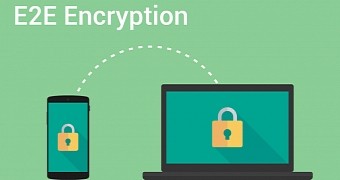While some governments would really like a way to kill encryption when it suits them, the Internet Society is calling for the full encryption of the Internet.
In a blog post addressed to the leaders of the G20 economies, the Internet Society complains about the fact that securing the digital world is becoming associated more and more often with restricting access to law enforcement.
Kathryn Brown, ISOC CEO, argues that the digital economy will continue to thrive and generate opportunities for citizens only if the Internet is strong, secure, and trusted; something that can only be obtained through encryption. "Without this foundation, the global digital economy is at risk," she says.
One of the topics on the agenda at the next G20 meeting in July is the spread of digital technology and its impact on economic growth.
"Germany wants them [ministers in charge of digitization] to agree to a concrete plan - one that includes affordable Internet access across the world by 2025, common technical standards and a focus on digital learning," Brown writes.
To make a point about why making the Internet safe is important, some figures are included in regards to the digital economy. 360 million people; 28% of output is digital; the Internet contributes $6.6tn a year. "The truth is that economies can only function within a secure and trusted environment, which brings us to encryption," Brown states.
The Internet Society brings up the fact that strong encryption is essential to the future of the world's economy, which is why it should be the norm for all online transactions. "It allows us to do our banking, conduct local and global business, run our power grids, operate communications networks, and do almost everything else," the message reads.
Encryption vs. law enforcement
That being said, in the past year, the issue of encryption has become intricately tied to the problems law enforcement agencies have had trying to break into people's communications and being unable to do so. This has led to numerous calls for backdoors into encryption layers provided by apps like WhatsApp.
The most recent case happened after the London terror attack when UK home secretary Amber Rudd criticized WhatsApp for not providing access to the conversations held by the terrorist, something that they cannot do given the end-to-end encryption protecting the messages, which means not even the company can get to them.
"The Internet Society calls for ubiquitous encryption for the Internet. We strongly believe that this is the best foundation for trust in the digital economy, and we urge the G20 nations to stand behind encryption," Brown concludes.

 14 DAY TRIAL //
14 DAY TRIAL //